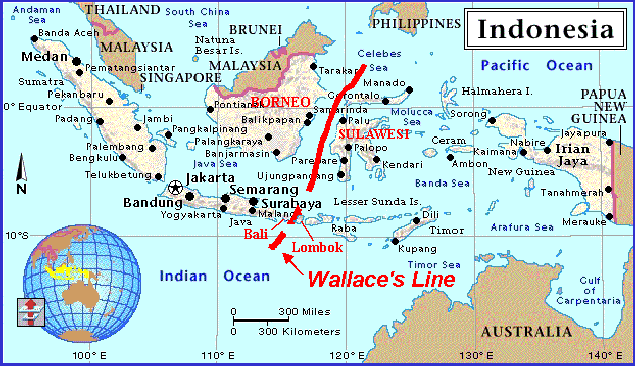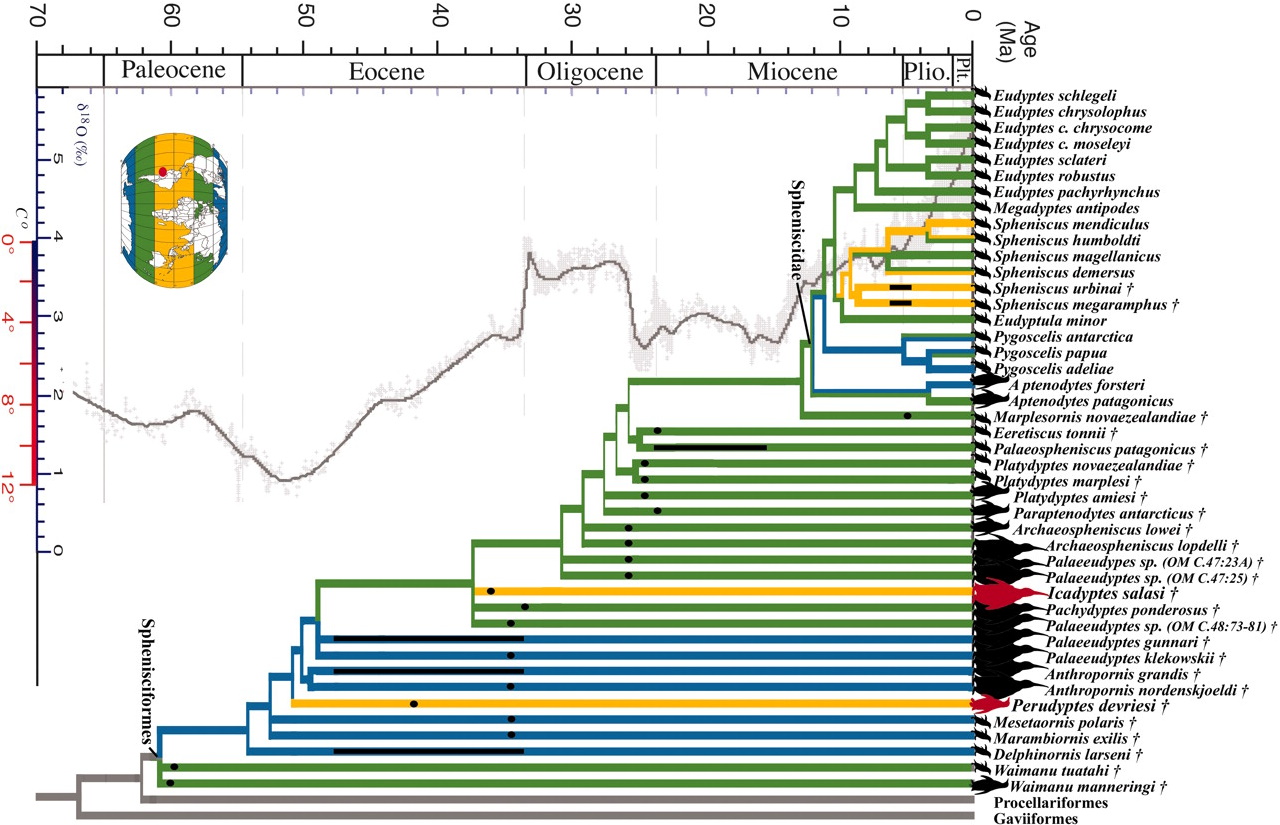African penguin. (Credit: Copyright David Grémillet)
Marine Protected Areas: A Solution for Saving the Penguin
ScienceDaily (Feb. 16, 2010) — Researchers from the Centre d'écologie fonctionnelle et évolutive (CNRS/Universités Montpellier 1, 2, 3/Montpellier SupAgro/CIRAD/EPHE) and the University of the Cape in South Africa (1) have shown that closing fishing zones in the ocean has a beneficial effect on Cape penguins, an endangered species endemic to Southern Africa that feeds exclusively on fish. This result comes from a unique experiment carried out by the researchers on two penguin colonies, with the collaboration of government authorities and the South African fishing industries.
These results are published on 10 February 2010 on the website of the journal Biology Letters.
The Cape penguin Spheniscus demersus (the only African penguin) is endangered as a result of the 60% decline in its worldwide population between 2001 and 2009. This decline can be attributed to a dearth of food, due to displacement of the banks of sardines and anchovies which these birds feed on. Competition with the fisheries which exploit the last remaining fish around the South African penguin colonies exacerbates the threat to the species. Faced with this crisis situation, and working with researchers and the South African fish industries, the South African governmental agency overseeing fisheries (Marine and Coastal Management) closed to fishing in January 2009 a 20-km radius ocean area around the largest Cape penguin colony (on the island of St Croix, Algoa Bay). A "witness" zone around another penguin colony (Bird Island), 50 km east of St Croix in the same bay, has remained open to fishing in order to enable researchers to compare penguin feeding behaviors.
The researchers studied the food-seeking behavior of 91 birds in these two colonies, thanks to GPS recorders, in 2008 and 2009, namely before and after the area was closed to fishing. The miniature recorders, in watertight hydrodynamic boxes, were attached to the feathers at the base of the birds' backs with adhesive. The goal was to record the latitude and longitude of the birds every minute, and the hydrostatic pressure (diving depth) every second. These data made it possible to calculate the effort each bird expended in searching for food, in terms of the length of time spent traveling, the distance covered, the number, depth and location of dives.
The results are striking: In 2008, before the area was closed to fishing, the St Croix penguins mainly fished (75% of dives) more than 20 km from their colony, covering up to 150 km in two days in their search for food. In 2009, on the other hand, only 3 months after the area had been closed to fishing, 70% of dives were less than 20 km away, within the protected marine area. The time devoted to searching for food also decreased by 30%, which reduced their daily energy expenditure by 40%. By way of comparison, the area within which the Bird Island penguins (the control colony) searched for food remained the same both years, with the penguins even expending more energy searching for food in 2009.
This experiment shows the immediate benefits of the creation of a Marine Protected Area for the preservation of an endangered top marine predator species. The study confirms the negative impact of industrial fishing on feeding conditions for African penguins and also demonstrates the crucial importance of Marine Protected Areas (2) on endangered species conservation. When appropriately defined, these areas can facilitate the restoration of ocean ecosystems (3) damaged by the combined effects of climate change and overfishing.
Notes:
(1) Of the Percy FitzPatrick Institute of African Ornithology.
(2) The 1992 Rio convention stipulates that 10% of marine surfaces be protected. Nonetheless, only 0,8% of these surfaces is currently reserves. In this context, the creation of Marine Protected Areas (MPA) which help preserve marine predators which feed on mobile prey such as ocean fish, is urgent. This strategy is nonetheless controversial, as it is difficult, in open water, to clearly delimit PMAs which aim to preserve species as mobiles as superior predators and their prey. The general principle is that these reserves must be very large in order to encompass the vast habitats of marine predators; this makes it more difficult to set them up and manage them.
(3) Plankton, both phytoplankton and zooplankton, fish (notably sardines and anchovies), all living organisms in the
Story Source:
Adapted from materials provided by CNRS (Délégation Paris Michel-Ange).
CNRS (Délégation Paris Michel-Ange). "Marine Protected Areas: A Solution for Saving the Penguin." ScienceDaily 16 February 2010. 17 February 2010 <http://www.sciencedaily.com /releases/2010/02/100211090755.htm>.








3 comments:
Thanks ever so much! I do try. :)
Thank you for your kind words. Here's to more blogging the info that will hasten penguin awareness! :)
Wow! I'm overwhelmed. I appreciate hearing that what I do is making a difference. That's all I want to do. :-)
Post a Comment